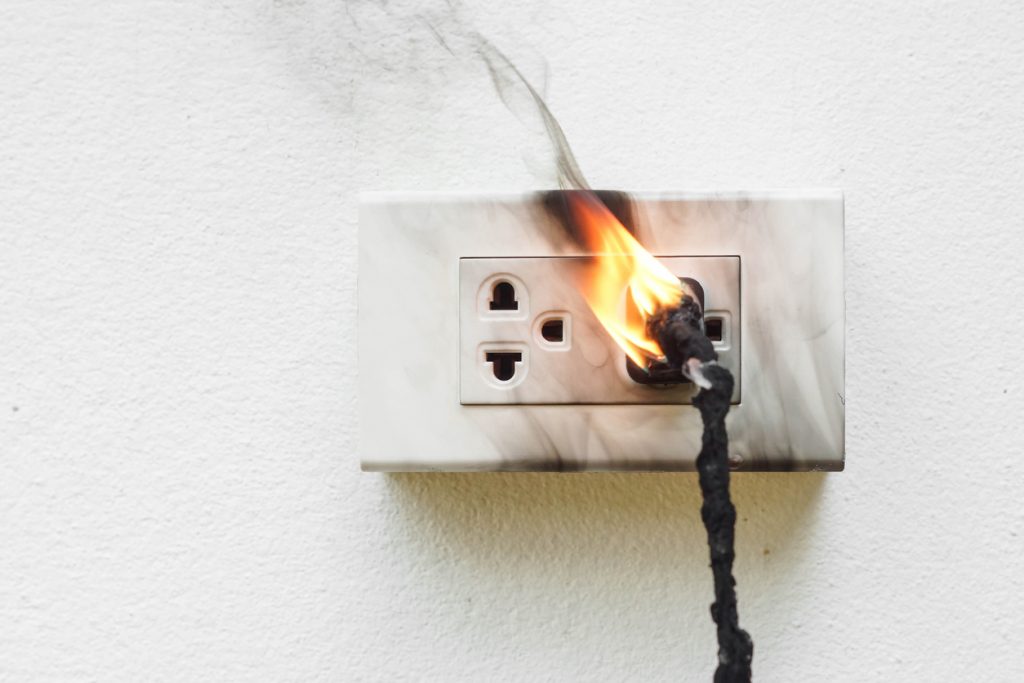Defective or outdated wiring is always a concern for your home’s safety. Every year, electrical failure causes about 1.3 billion dollars in property damage. Therefore, if you spot these signs of faulty wiring, consult an electrician immediately.
1. Defective or Frayed Wires
The most noticeable sign of faulty wiring is frayed wires. Rodents can gnaw on the insulation, leaving wires susceptible to arcing. Any deterioration due to age may also play a role.
Installation is another factor that may cause frayed wiring. If the wires are not secured properly, they can kink or get pinched and become frayed. You will need to call a licensed electrician to examine the wiring.
2. Buzzing, Dimming or Flickering Light Bulbs
Another symptom of defective wiring is buzzing or dimming lights. If the wires deteriorate, it will cause resistance and trigger voltage fluctuations. As a result, the connections will overheat, leading to a recurring problem. First, make sure the light bulb is secure in its socket. Also, it is worth noting that fluorescent lights tend to flicker.
When the flickering coincides with turning on an appliance, it is usually a sign of circuit overloading. If you’re located anywhere in the north San Joaquin Valley, you can reach out to The Electric Company’s certified electricians for an inspection.
3. Your Home Has Outdated Aluminum Wiring
Outdated wiring and connections are an electrical hazard for homes constructed between 1963 and 1972 in Modesto, CA. Even buildings built a few years later may have had upgrades completed with aluminum wiring. An electrical contractor may have had some wires left after a previous installation.
You can identify aluminum wiring from the label “Aluminum” on the insulation jacket. Aluminum often triggers overheating between the wiring and the connections to outlets and switches. You may spot burnt-out receptacles and lighting fixtures. The only way to be sure is to schedule an electrical wiring inspection.
4. Circuit Breaker Is Frequently Tripping
The circuit breaker will occasionally trip whenever the system detects an overload. A short circuit within an outlet or lighting fixture will force the circuit breaker to disrupt the current. It means the system has exceeded its maximum amperage. However, if the breaker is always tripping, it could signal electrical wiring faults.
The National Electrical Code also requires GFCI outlets for places with a high risk of an arcing or electrocution hazard. Your bathroom, kitchen and outdoor outlets must have GFCI (ground-circuit fault interrupter) outlets. If there is a wiring problem, the GFCI will prevent a ground fault.
Unless you have the training, it is wise to avoid tinkering with the electrical system on your own. You could worsen the problem and even trigger a serious electrical hazard. For exceptional rewiring services in Modesto, CA and the entire surrounding area, call us at The Electric Company today to arrange a consultation.




